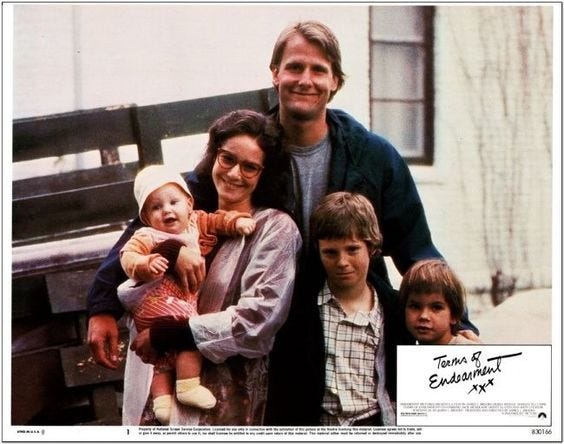choice-tired part 2: Terms of Endearment
on intimacy, emotional regulation, and Dostoevsky's thoughts on secret sharing
And we’re back… picking up where I left off in part 1, where I attempted threading a throughline between two films: Stalker and Terms of Endearment.
Since we covered Stalker more last time now we’re focusing on the second film, the 1983 classic which centers on a mother/daughter relationship.
Like with the character Stalker and…
Keep reading with a 7-day free trial
Subscribe to LET IT OUT LISTS to keep reading this post and get 7 days of free access to the full post archives.




